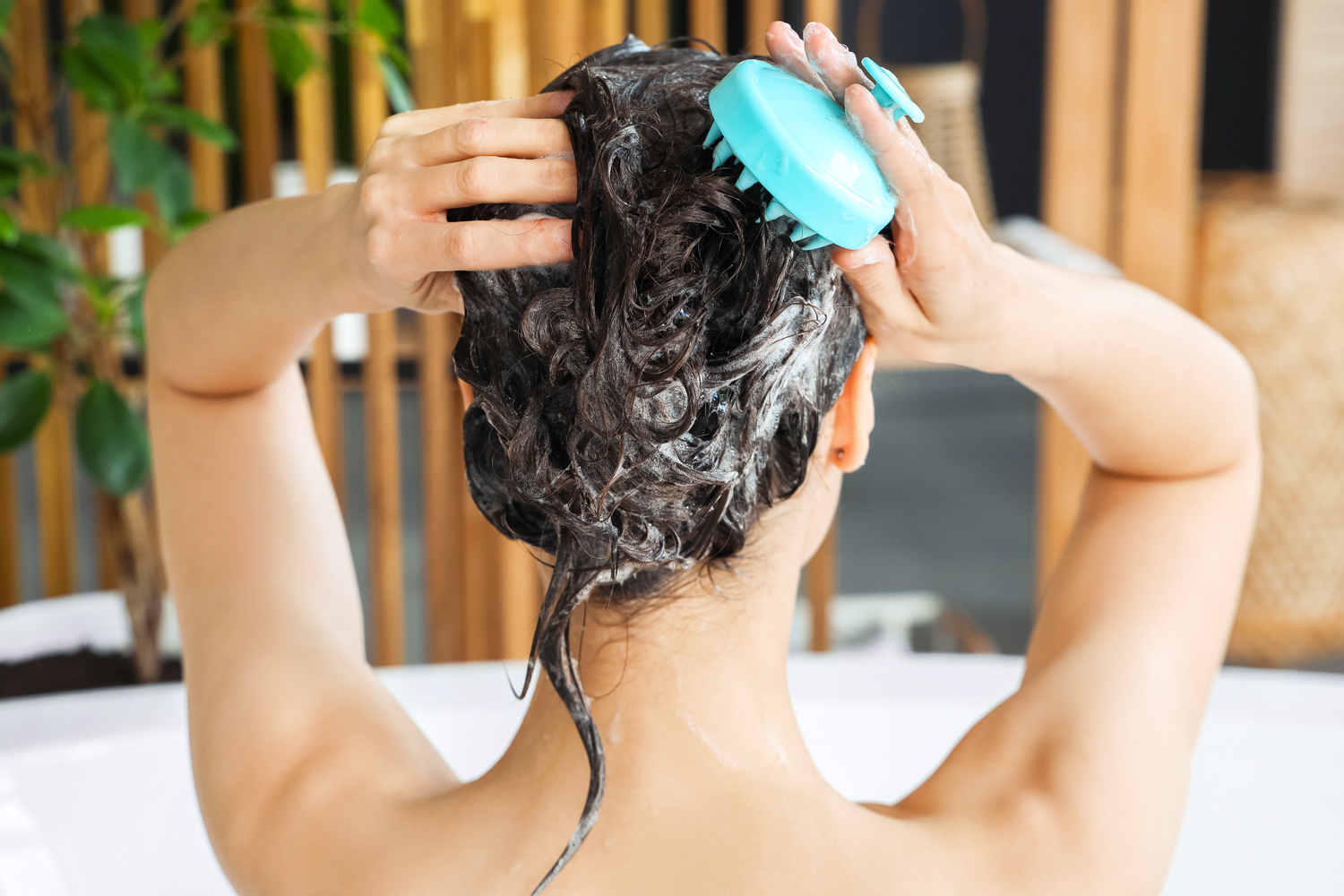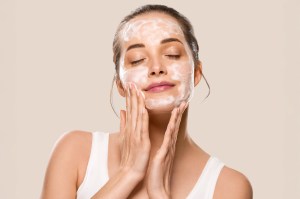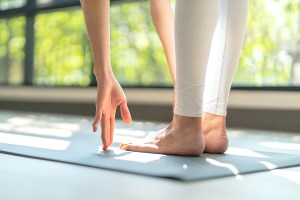We independently evaluate all recommended products and services. If you click on links we provide, we may receive compensation.
It’s not your imagination — suddenly, everyone seems to be using a scalp scrubber. Social media influencers claim it encourages hair growth and destroys dandruff, while Vogue says its relaxing effect prevents stress-induced hair loss. Even Unique Beauty editor Elizabeth Denton is a fan. “I use a plastic scrubber to break up the psoriasis on my scalp, and it makes me feel so much cleaner. I think it allows my shampoo to work better, too,” she says.
We asked trichologist and Colour Collective founder Kerry E Yates if scalp scrubbers are all they’re pumped up to be. “Everyone could use a scalp scrubber,” she says. “Studies have shown that simple scalp massages helped to improve scalp health and decrease hair fall. Massaging the scalp for a minimum of four minutes daily will relieve tension and tightness while improving blood circulation.”
However, “not all scrubbers are created equal,” Yates says. “Look for [one] with bristles that do not have hard edges.” Instead, opt for one with soft/pliable bristles. “I prefer a scrubber with thick bristles versus tiny, and usually a silicone material versus hard plastic or acrylic,” she continues. Yates specifically recommends the Vegamour Gro Scalp Brush and the Conair Scalp Care Brush.
Yates also has a technique for optimal results in the shower. “Using your pliable scalp brush — not your nails — and with light pressure, work the brush in a single direction from the front of your head to the back,” she says. “This will help alleviate tension in the scalp and distribute oils from roots to ends, improving hair suppleness.”
As for products to use with your brush, Yates likes Prive Scalp Reboot Serum (which comes with its own scalp massaging brush!), Innersense Hair Renew Scalp Oil, and Briogeo Scalp Revival Pre-Wash.
One important tip for scrubbing in the shower: “Remember that when shampooing, wet hair is super fragile, so be careful with the pressure and hair-pulling,” Yates says. “Excessive force can lead to broken hair strands.”
This article is for general informational purposes only.
Affiliate Disclaimer Medical Disclaimer
















 Unique Beauty is free for all users.
Unique Beauty is free for all users.